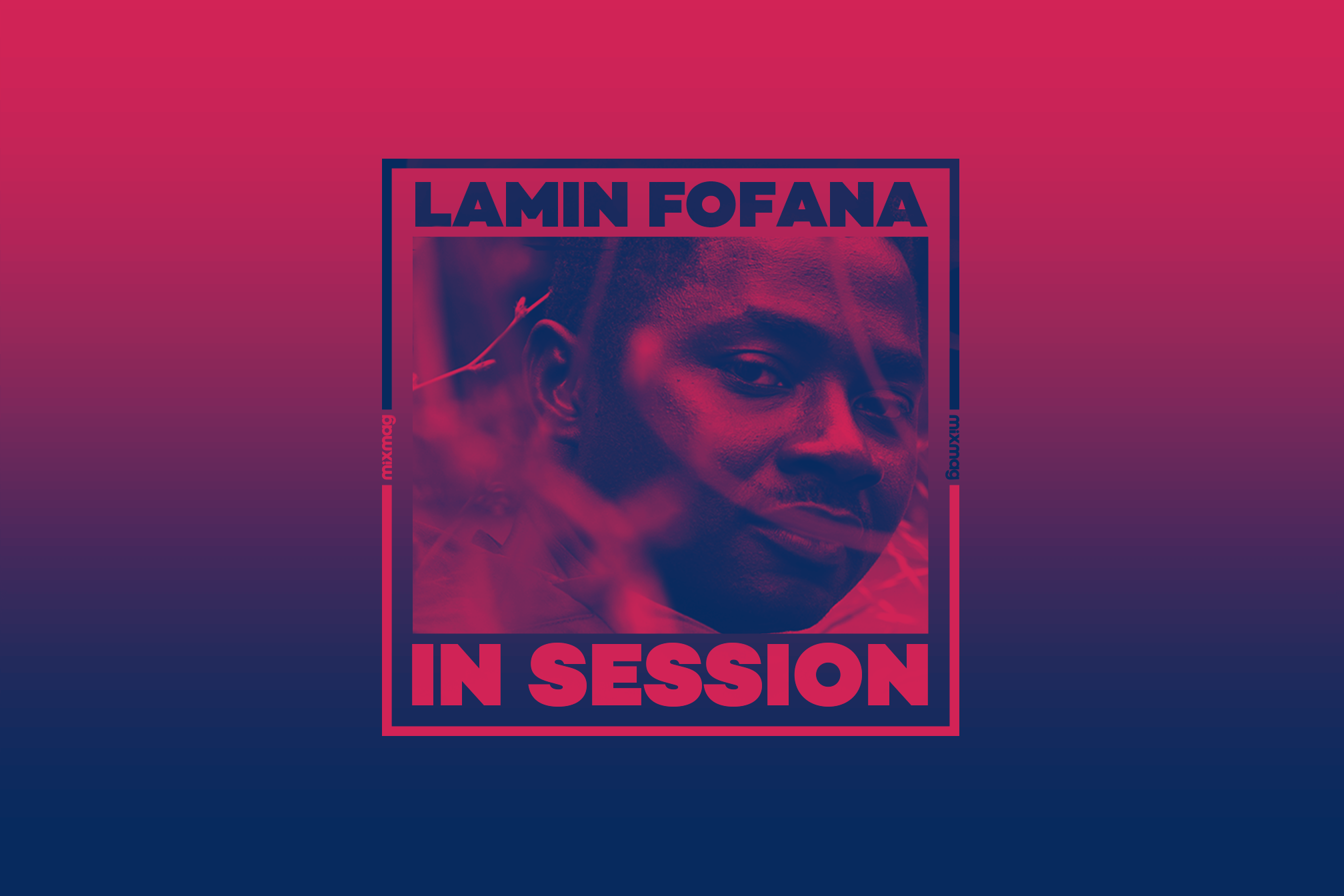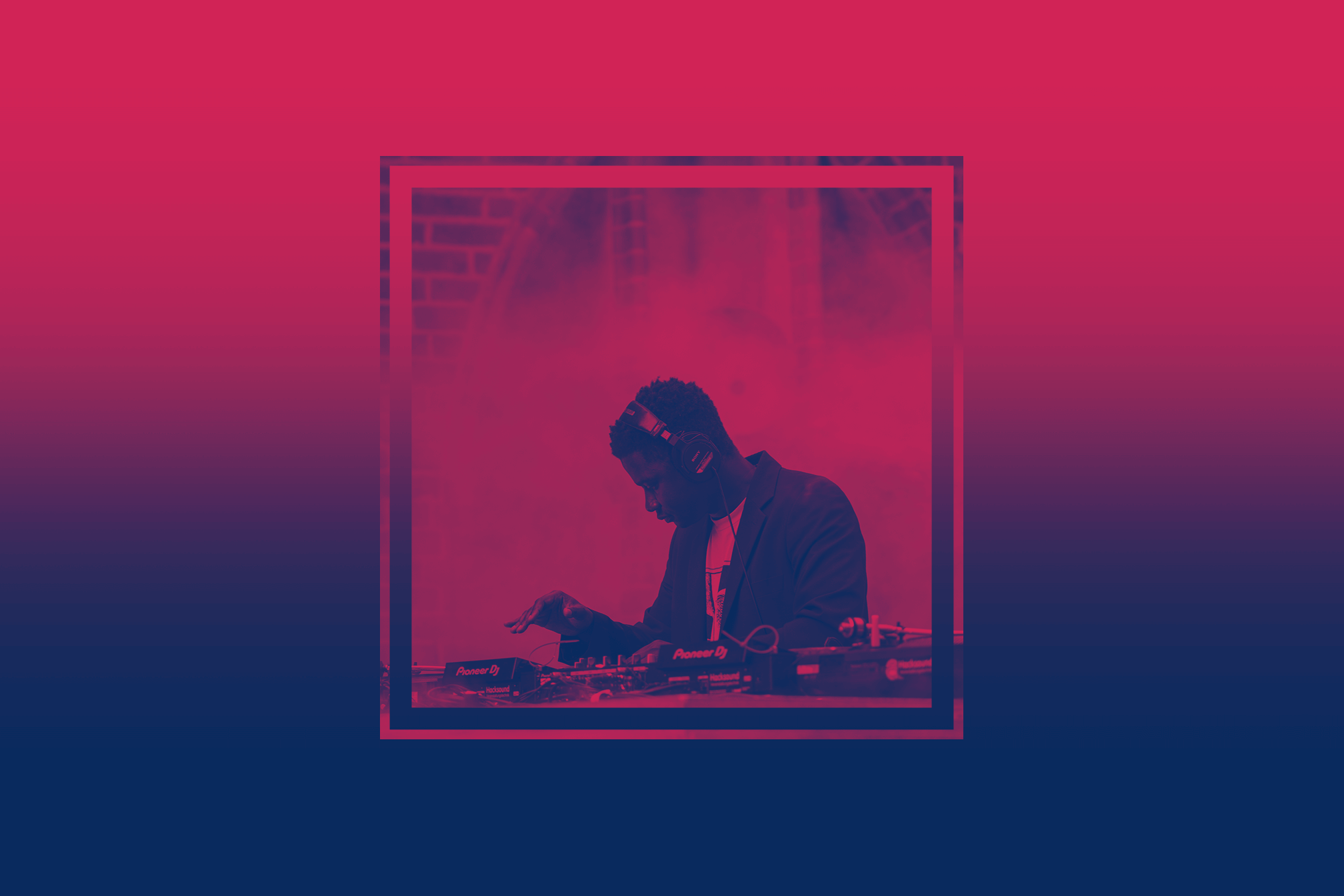 Music
Music
In Session: Lamin Fofana
The Sierra Leonean poet of sound talks literature and sound, and shares a mix that communicates a disconnection and yearning to reconnect with the clubbing scene
Constantly moving between New York and Berlin, Lamin Fofana is literally and metaphorically never tied-down when working. Engrossed by his surroundings, this Sierra Leone-born DJ, producer and artist uses a multitude of inspirations to create kaleidoscopic portraits that combine audio and physical forms. Interlinking his passion for literature, history and the present, he manages to create compositions that emulate the diversity of Black identity.
A harmony of whispers swirl around what sounds like light wind and rain in his latest single ‘Rehearsal of Truth’. Set to feature on his upcoming album ‘Unsettling Scores’, out December 2, this project is a reflection on the climate crisis — from the hurricanes in the Caribbean to mudslides from West Africa. The album saw Fofana return to his 2016 album ‘Doubleworld’, with the work serving as the building blocks on his forthcoming release. Acting as an extended version from this previous album, ‘Unsettling Scores’ - in particular, the tracks ‘A Symbol of the Withdrawn God’ and ‘The Dithering’ - Fofana is ever-growing form his own concepts and messages.
More of Fofana’s backlog of work has also been resurrected this year within the JMW Turner exhibition Dark Waters at Tate Liverpool. Contextualising Turner's 19th Century perspective on the dangers of the ocean through the lens of colonialism and capitalism — Fofana explores the "power and politics of the ocean." Much of his work on the exhibition saw him "translate" notable Black writers and poets into sound — examining topics such as migration, alienation and community.
Read this next: In Session: Aluna
This year, similarly to 2020, Fofana has released a new trilogy of ambient work. Beginning with ‘Ballad Air & Fire’ then to ‘Shafts of Sunlight’ and ‘The Open Boat’ which all delve into elements of Western life and its effect on Black identity and lifestyle.
Previously a member of the Dutty Artz collective, Fofana has now gone onto create his own label BLACK STUDIES with the release of the album ‘Darkwater’ in 2020. This same year, Fofana became a regular voice on NTS, seeing him go on to host an episode of Bottega Radio with Lafawndah.
We chatted with the producer ahead of the release of ‘Unsettling Scores' — you can read his Q&A and listen to his In Session mix below.

What is the music scene like in Sierra Leone?
It’s hard for me to say since I’m spending most of my time in the US and in Europe. Even with all the access made possible by technology and staying connected with family and friends back home, there is still a palpable distance. I am not able to offer an accurate picture of the scene in Sierra Leone. I can try to give my impression from the last in Freetown which was in November or 2018. I remember the music scene being very vibrant with local artists performing at football tournaments, beach parties, stadium concerts, and seeing posters for club nights and finding myself at some massive sound clash with half a dozen soundsystems battling with DJs playing original tunes and versions of popular songs. The local styles are still present but Nigerian and Ghanaian Afrobeats overshadow the local styles. One of the best artists at the time and I think he’s probably the most popular now is Drizilik. He has a new song called ‘Ashobi’ featuring Idris Elba that's been buzzing for the last couple of months.
How do you use your surroundings as inspiration for your work?
Well, listening is an ongoing learning process for me. Learning to listen everyday, practising different ways to hear things and learning to see things through listening. It is difficult, deciding to focus on one thing or opening up to hearing everything. It’s heavy, hearing not just the music in the air but the things we discard, the noise and dissonance that’s also present in the atmosphere. Sometimes, I just feel like leaning into that and amplifying it a bit.
Read this next: In Session: Schacke
What got you interested in producing music and how have you evolved?
It goes without saying; you can only appreciate music for so long before you start playing it yourself. You may start imitating or “paying homage” by making your own interpretations or renditions of the styles you love. Well, before all of that, you are just compelled to share those songs with the people around you by playing it or just talking about it. I think it all goes back to listening and enjoying music. I grew up constantly surrounded by a rich, cacophonous assortment of styles and sounds mostly coming from the African diasporic experiences around the globe: from where I was in West African listening to Afropop sounds from mbalax to coupé décalé to soukous to Jamaican reggae and dancehall to Haitian zouk, not to mention US hip hop and R&B and techno and house. There’s also the experience of travelling, the more you move, the more you are compelled to stretch things, draw connections, and that takes experimentation.

How did you create the soundscape for the JMW Turner exhibition and can you name some standout elements?
The pieces were already done. In fact, one of the three pieces, ‘Life and Death by Water’, was actually commissioned by the Liverpool Biennial as a large-scale, multisensory sound installation, and it was composed in 2019 for the 2020 Biennial which was postponed because of the global pandemic and was presented in 2021. Turner's seascapes are mournful, filled with grief, and are considered "visual reflections on loss". What kind of loss? Loss of what exactly? Turner understood that he was living in a catastrophe and was compelled to experiment, come up with new ways of seeing and imagining his island and its surroundings. Turner was aware of the social and ecological disaster of his times and was sounding the alarm. We are also living in seismic times. It’s really heavy and fucked up to think about this moment and as an artist if you stay in that space long enough, it will bury you. Anyway, regarding the pieces, it was also a matter of going through my collection and listening to them alongside the paintings inside the museum and hearing and seeing what corresponds to what.
How come you decided to make a trilogy of albums and what is the defining difference between each three for you?
I don’t know. It’s just the way things come together. I don’t set out to make a trilogy of albums, but the concepts and ideas I’m working with are heavy so the work overflows. I just end up organising them in a trilogic form. It’s beyond me. It’s a lot of work for me. I don’t necessarily start with that in mind or even think about that when I’m working. I’ll be reaching what I think are the wrapping up stages, and as soon as I begin to pull things together, more things happen. When I let go and step back and look at the entire thing, I feel alright letting it go.
There is a piece of literature paired with each release for instance Kamau Brathwaite, Rights of Passage, Volume I is posted alongside The Open Boat - why is this?
The history of migration, the constant movement of people all over the landscape and seascapes and all the overlapping of experiences, in Africa, in the Caribbean, in Europe, in Asia, the Americas, and beyond. Kamau Brathwaite was a poet and historian from Barbados and he was one of the deepest and most thinkers and scholars alongside Sylvia Wynter, Césaire, Du Bois, Baraka, Glissant and so many others whose work I find deeply insightful and inspiring thinking about a scattered project linking continents and dealing with the conundrum of contemporary black life, displacement, the environment, and looking at the past and future to gain some understanding of the now.
Read this next: Lamin Fofana releases final album in album trilogy exploring Black identity in the West
What do you want people to take away with them from listening to the trilogy?
I don’t know. I’m curious to know what people walk away with too.
What is the ethos behind BLACK STUDIES and why did you decide to create your own label?
I would really love to bring more voices in and work with people on projects. All the releases have been by me and my disposition or focus have been on intermedia translation or transmutation, but the imprint is not restricted to just that area. It is open and there’s so much to do but I’m overstretched.
Can you tell us more about your In Session mix?
It's a mix of some great tracks I haven't played in a while with some more recent stuff. Some seasoned and flambéed and some left raw. I have been exiled from “the club” for years, and I get homesick. The longing I experience occasionally shows up. Not much else to say, except extra shout out to Theo Parrish, Terre Thaemlitz, Omar-S, Levon Vincent, and big up Madteo too for the work they put in over the years.
Tracklist:
Photek 'T’Raenon (Version)'
Convextion 'A1 / AA'
Dedekind Cut 'Integra'
Architectural 'Unknown Fluid'
Generation Next 'Lamborghini Dreams'
Levon Vincent 'Double Jointed Sex Freak (Part 1)'
Omar-S 'Cjaipur (Unreleased Mix)'
Madteo 'Since Man Crawled Out of the Slime'
Terre’s Neu Wuss Fusion 'A Crippled Left Wing Soars With The Right (Steal This Record remix by DJ Sprinkles)'


